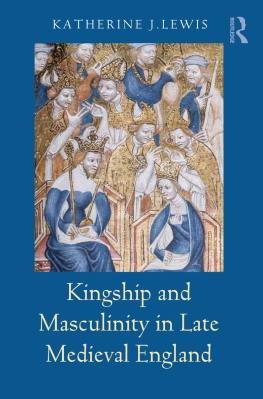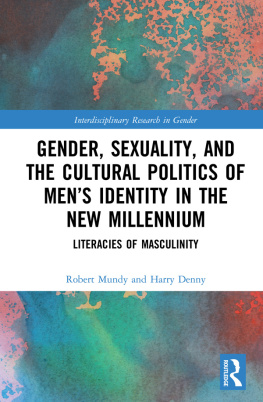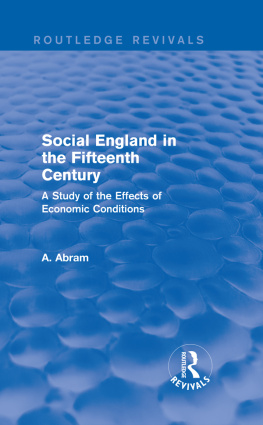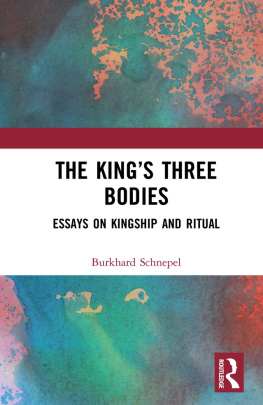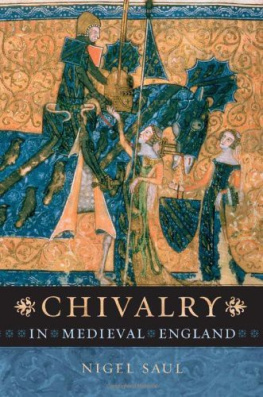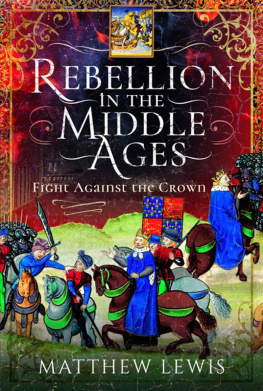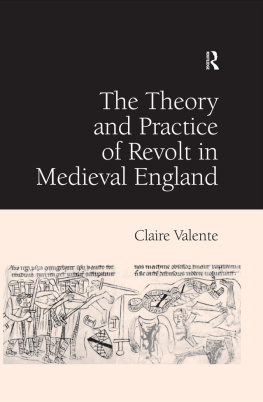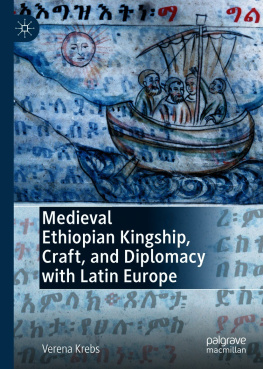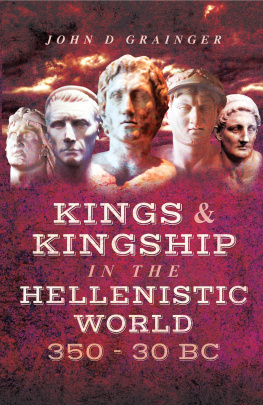Katherine Lewis - Kingship and Masculinity in Late Medieval England
Here you can read online Katherine Lewis - Kingship and Masculinity in Late Medieval England full text of the book (entire story) in english for free. Download pdf and epub, get meaning, cover and reviews about this ebook. City: London, year: 2013, publisher: Routledge, genre: History. Description of the work, (preface) as well as reviews are available. Best literature library LitArk.com created for fans of good reading and offers a wide selection of genres:
Romance novel
Science fiction
Adventure
Detective
Science
History
Home and family
Prose
Art
Politics
Computer
Non-fiction
Religion
Business
Children
Humor
Choose a favorite category and find really read worthwhile books. Enjoy immersion in the world of imagination, feel the emotions of the characters or learn something new for yourself, make an fascinating discovery.
- Book:Kingship and Masculinity in Late Medieval England
- Author:
- Publisher:Routledge
- Genre:
- Year:2013
- City:London
- Rating:3 / 5
- Favourites:Add to favourites
- Your mark:
Kingship and Masculinity in Late Medieval England: summary, description and annotation
We offer to read an annotation, description, summary or preface (depends on what the author of the book "Kingship and Masculinity in Late Medieval England" wrote himself). If you haven't found the necessary information about the book — write in the comments, we will try to find it.
Kingship and Masculinity in Late Medieval England explores the dynamic between kingship and masculinity in fifteenth century England, with a particular focus on Henry V and Henry VI. The role of gender in the rhetoric and practice of medieval kingship is still largely unexplored by medieval historians. Discourses of masculinity informed much of the contemporary comment on fifteenth century kings, for a variety of purposes: to praise and eulogise but also to explain shortcomings and provide justification for deposition.
Katherine J. Lewis examines discourses of masculinity in relation to contemporary understandings of the nature and acquisition of manhood in the period and considers the extent to which judgements of a kings performance were informed by his ability to embody the right balance of manly qualities. This books primary concern is with how these two kings were presented, represented and perceived by those around them, but it also asks how far Henry V and Henry VI can be said to have understood the importance of personifying a particular brand of masculinity in their performance of kingship and of meeting the expectations of their subjects in this respect. It explores the extent to which their established reputations as inherently manly and unmanly kings were the product of their handling of political circumstances, but owed something to factors beyond their immediate control as well. Consideration is also given to Margaret of Anjous manipulation of ideologies of kingship and manhood in response to her husbands incapacity, and the ramifications of this for perceptions of the relational gender identities which she and Henry VI embodied together.
Kingship and Masculinity in Late Medieval England is an essential resource for students of gender and medieval history.
Katherine Lewis: author's other books
Who wrote Kingship and Masculinity in Late Medieval England? Find out the surname, the name of the author of the book and a list of all author's works by series.

